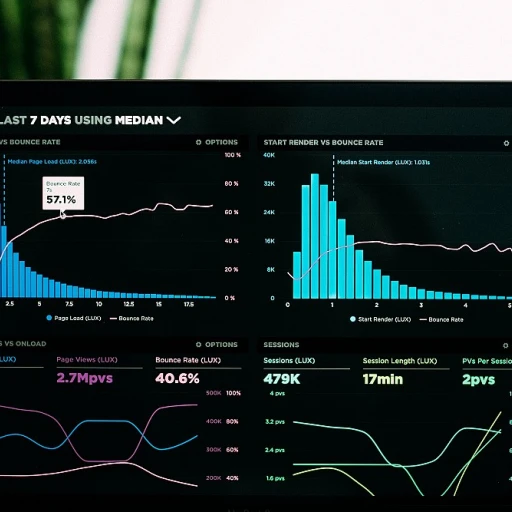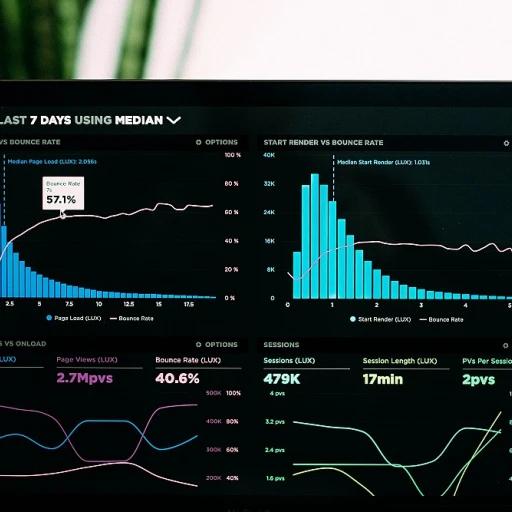
Understanding the Role of AI in SEO
AI as an Instrument for SEO Enhancement
The evolving realm of digital marketing places significant emphasis on search engine optimization (SEO), especially for businesses striving to position their brand amidst an ocean of competitors. In recent years, artificial intelligence (AI) has emerged as a transformative force in SEO, reshaping traditional methodologies and pushing companies to redefine their marketing strategies to align with AI-driven insights.
For companies today, leveraging AI in SEO is not just about gaining a technical edge; it's about reimagining how data and customer experiences are interwoven. AI tools allow marketing leaders to analyze vast datasets, predict search trends, and tailor content to meet user intent more precisely. This strategic way of leveraging AI helps businesses improve their online visibility and engagement, while driving meaningful interactions with their audience.
Moreover, the role of a Chief Marketing Officer (CMO) becomes intrinsically linked with understanding and incorporating AI into their SEO practices. In the quest for market dominance, CMOs are tasked with ensuring their teams comprehend and utilize AI to refine marketing strategies, enhancing both brand presence and customer satisfaction. This strategic thinking is crucial as companies increasingly rely on data-driven decisions to shape their digital landscapes.
By embracing AI, marketing teams can automate several SEO tasks, unburdening them from time-consuming processes. This allows CMOs to focus on higher-level marketing leadership and strategy development, ensuring that their teams are equipped to navigate the complexities of the digital market.
Diving deeper into this topic, it is essential for marketers to remain informed about transformative AI trends that are reshaping SEO landscapes. These advancements pave the way for innovative marketing strategies and broaden the perspective of what SEO can achieve for businesses in both the short and long term. AI is not just a tool; it's a significant piece of the puzzle in shaping modern SEO strategies.
Challenges Faced by B2B CMOs
Addressing Unique Complications for B2B Marketing Leaders
Navigating the landscape of B2B marketing presents an array of unique challenges, particularly when incorporating AI into search engine optimization strategies. Chief Marketing Officers (CMOs) in B2B companies face intricate hurdles, from aligning AI technologies with business goals to fostering an engaging customer experience. One primary concern is the complexity of data handling. Companies often deal with vast amounts of data that require sophisticated AI tools to analyze effectively. This data drives digital marketing strategies, but without proper integration, it can lead to inconsistent results. Marketing leaders must ensure their teams possess the strategic thinking needed to translate data insights into actionable strategies. The pressure to keep pace with rapid technological advances adds another layer of difficulty. CMOs need to stay ahead of the curve by continually adapting to new tools and trends. This requires significant investment in team training and development to build expertise in marketing automation and AI-driven tactics. Time management is a constant struggle, as the role of the CMO demands balancing long-term strategy with immediate needs. The fast-paced nature of digital media often impacts how these marketing strategies are formulated and executed. Hence, prioritizing tasks becomes crucial. Furthermore, the integration of AI in SEO requires changes in customer interaction strategies. Marketing teams must engage with customers through optimized social media and other digital platforms to maintain brand relevance in the market. This involves strategic adjustments to match digital strategies with customer expectations. During the interview process, it will be important for marketing leaders to ask targeted questions that probe how AI is being applied within SEO efforts. Understanding its impact on social engagement and brand visibility will be key. For more details on enhancing SEO engagement strategies through AI, you can explore this resource: enhancing SEO with AI. In conclusion, while B2B CMOs face distinctive challenges when implementing AI in SEO, the continued refinement of marketing strategies and effective leadership stand as essential components in overcoming these obstacles.AI Tools and Technologies for SEO
AI-Driven SEO Tools: Transforming the Game
AI has been revolutionizing the landscape of search engine optimization (SEO) with tools and technologies that empower marketing teams and companies. Technology increasingly plays a pivotal role in enhancing a company's SEO strategy, providing insights that can vastly improve visibility and ranking. In the dynamic field of digital marketing, AI tools are indispensable for:- Data Analysis: Harnessing vast amounts of data, AI-driven SEO tools can analyze and predict trends that marketing leaders can leverage to inform their strategies.
- Content Optimization: Through sophisticated algorithms, these tools offer recommendations for content creation that aligns with market demands, ensuring the brand resonates with its target audience.
- Automated Reporting: Saving the marketing team effort and time, automated features in AI tools streamline reporting, leading to swift decision-making processes and efficient strategy implementation.
Interviewing B2B CMOs: Key Insights
Gathering Perspectives from B2B CMOs
Engaging with B2B CMOs reveals a rich tapestry of insights regarding the integration of AI into search engine optimization. The role of the Chief Marketing Officer is increasingly being defined by the need to harmonize data-driven insights with strategic thinking. In our interviews, multiple marketing leaders highlighted the necessity for balancing traditional strategies with AI-enhanced marketing strategies.The Importance of Strategic Alignment
Marketing officers often emphasize the vital role of strategic alignment in implementing AI solutions effectively. It’s clear that CMOs view AI as a tool to build stronger customer relationships and improve the customer experience. The role of a CMO in this context involves steering the marketing team towards long-term goals while leveraging AI to enhance digital marketing efforts.Challenges and Opportunities
In our discussions, a common challenge cited by marketing leaders is the integration of AI with existing platforms and gaining the necessary skills within their teams. However, CMOs recognize that those companies which embrace AI innovations in SEO can create significant competitive advantages. This perspective is crucial as demand generation and digital market positioning become more reliant on technological advancements.Questions that Matter
During the interview process, CMOs often focus on key questions such as how AI can be used to personalize marketing automation or what AI tools can most effectively enhance brand visibility. There’s also a keen interest in how data derived from AI can inform better business decisions and marketing strategy refinements.Driving Forward
Ultimately, the interview insights point to a continuous journey where marketing leaders must adapt to evolving digital landscapes. The role of the CMO is not just about keeping up but about strategically guiding the company forward in a way that aligns technology with customer-centric values. This approach not only fortifies the brand but also ensures that the marketing team remains at the forefront of innovation and efficiency in digital marketing efforts.Best Practices for Implementing AI in SEO
Actionable Strategies for Integrating AI in SEO
As artificial intelligence continues to revolutionize the digital marketing landscape, it's essential for marketing leaders to implement effective strategies that leverage AI in search engine optimization. Successful integration of AI tools requires a strategic approach that aligns with the business objectives and marketing goals of the company.
Define Clear Objectives and Goals
Before diving into AI technologies, it's crucial that the marketing team, spearheaded by the chief marketing officer, identifies clear goals for implementing AI in their SEO strategy. This could involve improving customer experience, increasing brand visibility, or enhancing data analysis capabilities. By setting specific objectives, marketing leaders can ensure a focused approach to AI adoption.
Collaborate Across Teams
A key insight gathered from leading chief marketing officers is the importance of collaboration between different departments. AI and SEO strategies are no longer confined to the digital marketing team alone. Business leaders should encourage synergy between marketing, IT, and data analytics teams to maximize the impact and efficiency of AI initiatives.
Invest in Training and Development
The role of the CMO includes preparing the company for technological advancements. Investing in training and development ensures that the marketing team is well-equipped with the necessary skills to utilize AI tools effectively. Continuous learning opportunities should be made available, helping the team adapt to the rapidly evolving digital landscape.
Start Small and Scale Over Time
For companies that are new to AI, starting with small-scale projects can help manage risks and build a solid foundation for long-term success. This iterative approach allows marketing strategies to be tested and refined before wider implementation. As the team gains confidence and understanding, AI tools can be scaled to broader marketing applications.
Measure Outcomes and Adapt
Regular assessment and adaptation are vital for optimizing AI in SEO. By measuring outcomes against pre-defined goals, companies can identify areas for improvement and adjust their strategies accordingly. This data-driven approach ensures that AI integration remains aligned with the market demands and company vision, keeping the brand competitive in the digital marketplace.













